Many people have a negative view of pigeons, particularly those that dwell in our towns and cities, that it is hard to imagine that this bird has many positive attributes.
They actually play a very important role in the environment, contributing significantly to seed dispersal across the world and also providing a vital source of food for predators higher up the food chain.
Despite their huge numbers the environmental impact of pigeons is mostly positive.
Their presence is usually benign, not competing with indigenous animals for shelter or food.
The sheer number of pigeons is what makes them an effective tool in the ways they contribute towards the environment.
1. They Help With Seed Dispersal
Everyone seems to be aware that the reducing number of bees has an impact on pollination across the globe, but pigeons also have a huge role in the natural order of things.
They aid seed dispersal across their various environments.
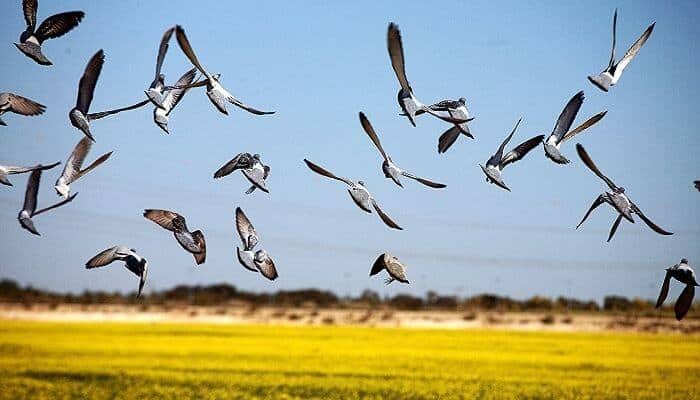
Seeds make up the bulk of a pigeon’s diet and they ingest a huge range of different seeds.
When they pass faeces in the different locations that they fly to, so too do those seeds pass, and that is essentially how the process of seed dispersion happens.
This helps to maintain and add variety to various areas on the pigeon’s flight path, and it’s worth mentioning that pigeon poop is a wonderful fertilizer for the ground and pigeon poop can be composted.
2. Pigeons Are A Source Of Food For Predators
It might not be the thing to which pigeons want to contribute themselves, but there is no getting away from the fact that they act as a key food source in the animal kingdom!
Lots of breeds of raptors rely on pigeons to give them the sustenance that they need, and this happens all across the world.
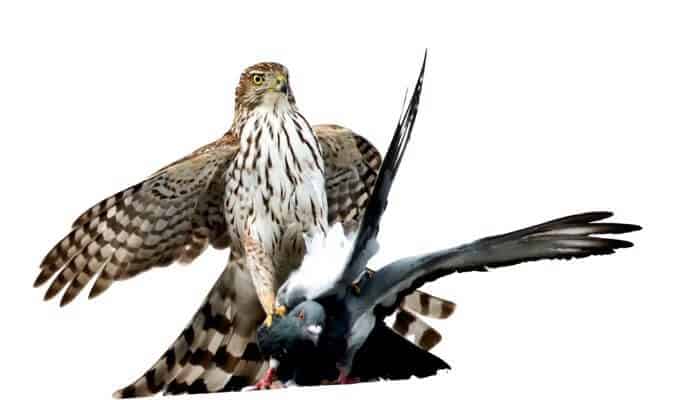
It’s never a great fact to think about for pigeon lovers out there, but at the same time, we can’t look over the important role in the food chain and the circle of life that pigeons provide.
With human intervention, pigeons have also had a role in the reintroduction and/conservation of endangered species such as the Peregrine Falcon to areas in the UK where pigeons are an abundant source of food.
Pigeons are are a vital source of food for many predators throughout the world.
3. Pigeons Help Stop The Growth Of Invasive Weeds
Weeding is one of those gardening jobs that most humans hate doing, but luckily for us, pigeons like to do it as part of their natural behavior.
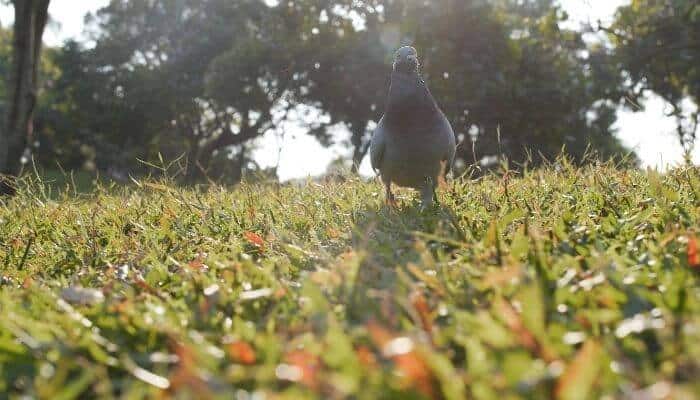
One of nature’s best weed killers, pigeons like to eat things like thistles in very large quantities, and in the process of eating them, they obviously rip them out of the ground and prevent them from overgrowing and taking over an environment.
Thistles in particular are classed as being ‘noxious’ weeds, and the service that pigeons provide on this front help to prevent them from becoming the dominant, overcrowding plant in any given area of flora.
4. Pigeons Clean Up Food Waste
There should be no need to say that humans are an untidy species – everyone is aware of the damage our litter bugging has done and is doing to the environment.
Pigeons might not be able to do anything about the plastic problem but they are effective street cleaners, happily eating the food that humans discard in town and city’s streets.
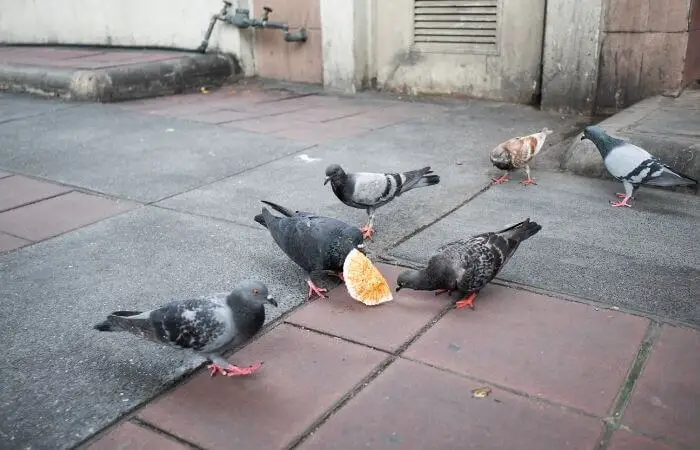
Pigeons will eat practically any food that we drop or throw away despite a burger or fish and chips being as unhealthy for them as it is for us.
We should mention that despite their huge numbers (and their human-perceived nuisance factor), pigeons do not harm the environment in any way.
Their presence is usually benign, not competing with indigenous animals for shelter or food.
5. Other Benefits Of Pigeons
Let’s not forget that man has domesticated pigeons for thousands of years. They were invaluable in early communication and right up until World War II.
They had a major role in carrying messages and information in World War I and even today they are used for important jobs such as medicine delivery in remote areas.
Pigeons also bring many people a lot of joy.
Thousands of pigeon fanciers love the birds and keep them as pets and there are pigeon clubs and associations all around the world with a huge number of shows and exhibitions every year.
Add to this the number of owners of racing pigeons.
The value of this aspect of the pigeon should not be underestimated as a benefit.
Humans value many things that matter by attaching a price and when you hear that the world’s most expensive racing pigeon was sold in 2020 for a sum of £1.2m ($1.8m) there’s no arguing that pigeons matter.
The Negative Environmental Impact Of Pigeons
So, those are the key positives of what pigeons can do for our environment, but what about the other end of the spectrum?
What about the negative impacts that pigeons have on their surroundings?
1. Building Damage
As pigeons have obviously become more comfortable with living in urban environments among human structures, they have adjusted to nesting both inside and outside of buildings.
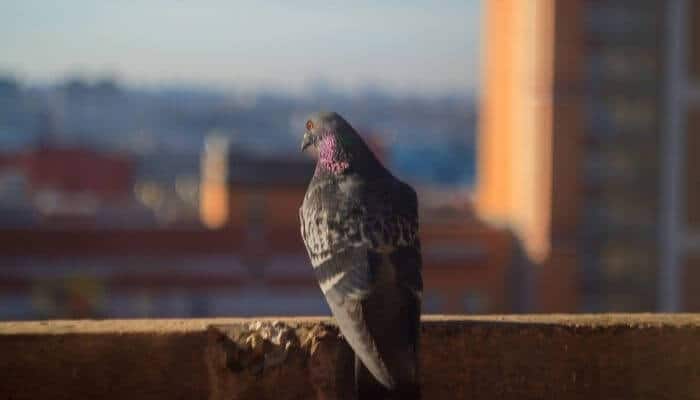
While these buildings can provide a safe and sturdy place for them, pigeons can end up causing damage to the interior and exterior of these structures.
2. Toxic Droppings
We have mentioned that pigeon poop can be a great fertilizer for the earth, but when it comes to human contact, it can be poisonous.
The droppings themselves are highly acidic and if directly ingested through mouth or other contact, they can cause illness in humans.
Aside from this, the acidic nature of the droppings can also, over time, wear down things like soft stone and masonry.
Ultimately, there are good and bad factors in what pigeons do for our environment, but we tend to think that the good they can do in their seed dispersal and weed maintenance outweighs the bad.
